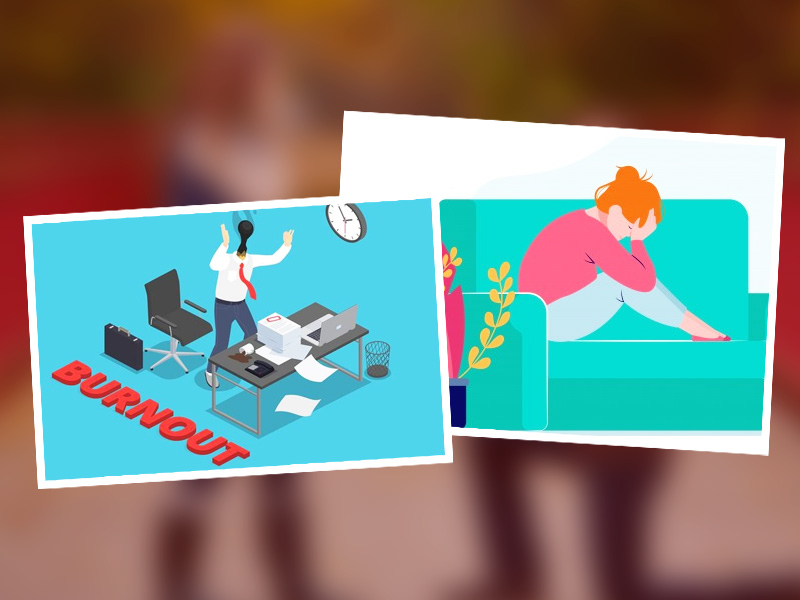
In the world we live in today, burnout catches up with us before we even have a chance to notice it. Amidst deadlines, personal tasks, and the need to be constantly connected, many of us overlook our body and mind's subtle cues that it is time to take a break. And, paying attention to these signs sooner can avoid physical burnout, emotional burnout, and even chronic health problems.
Table of Content:-
Signs You Need a Break
Here are a few signs that your body is giving you that it needs a break:
1. Persistent Fatigue
If you feel sleepy even after a whole night of sleep, it is not necessarily bad sleep; it could be your body warning you of burnout. Persistent exhaustion is one of the strongest indicators that your mind and body require time out.
2. Loss of Focus and Productivity
Difficulty concentrating, forgetting trivial things, or taking more time than normal to complete basic tasks are warning signs. Research indicates that mental overload slows down efficiency and creativity.
3. Irritability and Mood Swings
When minor problems become too much to handle, or you catch yourself yelling at others for no reason, it might be stress mounting. Instability of mood usually results from burnout.
Also Read: Expert Shares Why Being Healthy Is More Important Than Being Thin

4. Physical Decline
Regular headaches, muscle aches, digestive problems, or even getting colds frequently can mean that stress is compromising your immune system.
5. Social Withdrawal
If you don't want to see friends, talk to relatives, or do things you used to love, and that’s become a pattern now, it's a sign that you're exhausted mentally and need to refuel.
How to Recover and Refuel From a Burnout
The good news is that you don't always have to live with this feeling of exhaustion. Here’s how you can recover and refuel your mind and body:
1. Take Mini Breaks During the Day
Even five minutes off your desk, like stretching, walking, or just breathing, can refresh your mind and head off mental exhaustion.
2. Get Priority Sleep
Sleep is not a luxury; it's a necessity. Aim for seven to nine hours of quality sleep to renew both body and brain.
3. Practice Mindfulness
Meditation, journaling, or simply practising gratitude can calm stress and bring peace. Even 10 minutes a day can do the trick.

4. Disconnect from Technology
Take a digital detox, even for one evening. Stashing away your phone refreshes your mind and minimises overstimulation.
5. Move Your Body
When we exercise, a hormone named endorphin is released, which helps to improve mood and relieve stress. Note that your workout doesn't have to be intense, and a walk or yoga session is good enough
Bottomline
Denying signs of burnout may cause long-term health consequences, but addressing them early can balance things out. Keep in mind that rest is not a reward; it's a requirement for continued health and happiness.
FAQs
1. How do I know if I really need a break or if I'm just lazy?
If rest fails to recharge your batteries, and you remain mentally and physically exhausted even after sleep or time off, it's a strong sign you require a true break, not a motivation boost.
2. Can short breaks actually stop burnout?
Yes. Micro-breaks during the day reset your brain, enhance concentration, and reduce tension, stopping the accumulation that causes burnout.
3. How long should I break to recover?
It depends on how stressed you are. At times, several hours of responsible rest is sufficient, but in extreme situations, a weekend trip or long vacation is in order.
Also watch this video
How we keep this article up to date:
We work with experts and keep a close eye on the latest in health and wellness. Whenever there is a new research or helpful information, we update our articles with accurate and useful advice.
Current Version
Sep 22, 2025 15:41 IST
Published By : Tanya Srivastava